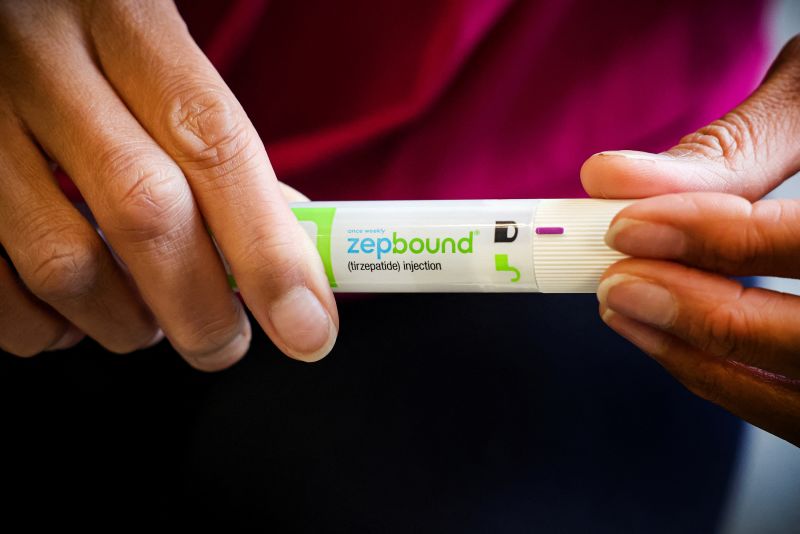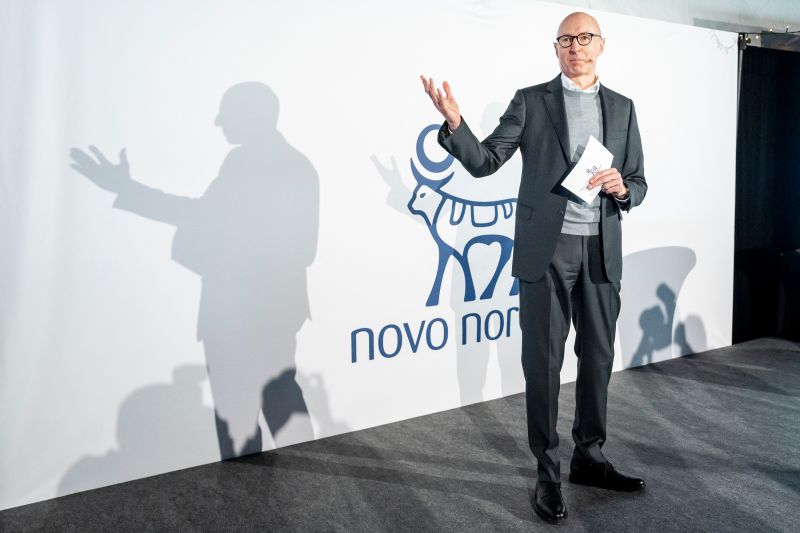FDA approves weight-loss drug Zepbound for obstructive sleep apnea

The US Food and Drug Administration on Friday approved the first prescription medicine for obstructive sleep apnea: the weight-loss drug Zepbound.
The medicine, part of the class known as GLP-1 receptor agonists that also includes Ozempic, was cleared to treat moderate to severe forms of the sleep condition in people with obesity. It should be used with a reduced-calorie diet and increased physical activity, drugmaker Eli Lilly said in a news release.
“This is a major step forward for patients with obstructive sleep apnea,” Dr. Sally Seymour, director of the FDA’s Division of Pulmonology, Allergy, and Critical Care, said in the FDA announcement.
Obstructive sleep apnea, or OSA, affects as many as 30 million people in the USand is closely associated with obesity, according to the American Academy of Sleep Medicine, which notes that weight loss can reduce its severity. It’s characterized by breathing disruptions during sleep caused by blocked airflow and increases the risk of heart and brain problems.
“Many cases of OSA go undiagnosed and untreated, leaving millions at risk for serious health consequences,” Patrik Jonsson, president of Lilly Cardiometabolic Health, said in the company’s release. Symptoms include snoring or gasping during sleep and excessive sleepiness in the daytime.
Jonsson noted that Lilly’s clinical trials showed that almost half of participants “saw such improvements that they no longer had symptoms associated with OSA.”
The approval is the second indication for Zepbound, which was approved for weight loss for those with obesity, or who are overweight and have a weight-related health condition, in November 2023.
Although the new FDA green light doesn’t expand the number of people who may be eligible for the drug, since the sleep apnea approval is specifically for people with obesity, it could lead to insurance coverage for those with the condition on Medicare, which doesn’t cover drugs solely for weight loss.
Without insurance coverage, Zepbound costs $1,060 per month, but Lilly offers discounts, coupons and a lower-priced version that comes in a vial that patients use a syringe to inject instead of an auto-injector pen. Still, costs can run to hundreds of dollars each month out of pocket.
The Biden administration proposed in November to change Medicare’s coverage policy for obesity drugs, but currently, Medicare beneficiaries can get coverage for weight-loss medicines only when they’re used for another indication, like reducing heart risks.
The FDA approval for sleep apnea is based on two company-sponsored trials encompassing about 470 participants, one in which patients were being treated with continuous positive air pressure, or CPAP, machines, a mainstay of treatment that helps keep the airway open.
Treatment with Zepbound, whose generic name is tirzepatide, led to improvements in both sets of patients, according to results published in June in the New England Journal of Medicine.
The trials’ main goal was improvement on a metric known as the apnea-hypopnea index, or AHI, the number of breathing disruptions during an hour of sleep. In both studies, the mean AHI to start was about 50 events per hour, and patients had an average body mass index, or BMI, of about 39; obesity is characterized as a BMI of 30 or more.
- Sign up here to get The Results Are In with Dr. Sanjay Gupta every Friday from the CNN Health team.
In the trial in which patients weren’t using CPAP machines, those using Zepbound had about 25 fewer AHI breathing events per hour, on average, after a year of treatment, compared with a reduction of about five for those on a placebo. In the trial in which patients were on CPAP machines, those on Zepbound had about 29 fewer events per hour, compared with about six for those on placebo.
Participants on Zepbound also lost significant amounts of weight: about 18% of their body weight, on average, in the first trial and about 20% in the second, compared with 1.6% and 2.3%, respectively, for those on placebo. That equates to 45 to 50 pounds of weight loss, on average, over a year, Lilly said.
Patients on the drug also saw reductions in blood pressure and inflammation, “important risk factors for cardiovascular complications of obstructive sleep apnea with obesity,” researchers wrote in the New England Journal of Medicine.
The most common side effects were gastrointestinal events, which were typically mild to moderate, the researchers said, and happened most during the time when patients were just starting the medicine or increasing their dose.







